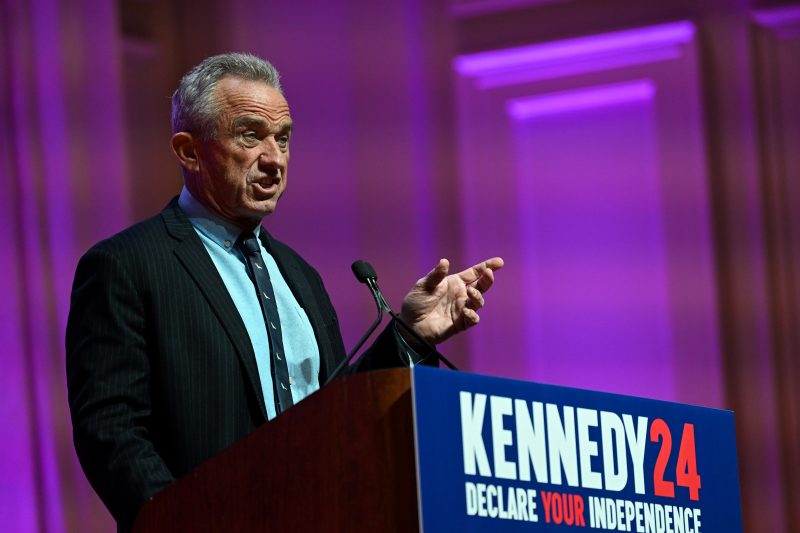
RFK Jr. Embraces California Ballot Nomination Despite Controversial Party Affiliation
The recent embrace of California’s ballot nomination by Robert F. Kennedy Jr. from a party with a history of far-right ties has sparked controversy and debate among political circles and the general public. This decision raises concerns about the influence of extremist factions within the political landscape and the potential impact on the upcoming elections.
Kennedy’s decision to align himself with a party known for its far-right connections comes as a surprise to many, given his family’s long-standing legacy in progressive politics and social justice advocacy. The move has prompted questions about his motives and the underlying forces at play in his decision-making process.
One of the key issues at hand is the party’s history of far-right ties, which have been well-documented and scrutinized by various watchdog organizations and media outlets. By accepting the ballot nomination from such a party, Kennedy may inadvertently lend legitimacy to extremist ideologies and agendas that run counter to the values he has historically espoused.
Moreover, Kennedy’s association with a party linked to far-right elements could have broader implications for the political landscape in California and beyond. It raises concerns about the potential for mainstreaming extreme viewpoints and the erosion of democratic norms and institutions.
Critics argue that Kennedy’s decision reflects a broader trend of political opportunism and expediency, where individuals are willing to compromise their principles in pursuit of personal gain or power. By courting support from a party with far-right ties, Kennedy may be seeking to broaden his appeal to a segment of the electorate that is typically outside his traditional base.
On the other hand, supporters of Kennedy may see his decision as a strategic move aimed at expanding his political reach and engaging with a wider range of voters. They may argue that forming alliances across ideological divides is a necessary step towards building consensus and advancing meaningful change in a polarized political environment.
Ultimately, Kennedy’s embrace of the California ballot nomination from a party with far-right ties raises important questions about the complexities of political alliances and the ethical considerations that public figures must navigate in their pursuit of political office. It underscores the need for greater transparency, accountability, and critical engagement with the forces shaping our democracy.
As the upcoming elections approach, it will be crucial for voters to scrutinize the candidates and parties seeking their support, and to consider the broader implications of their choices on the future of our democracy. The case of Robert F. Kennedy Jr. serves as a cautionary tale about the potential pitfalls of political alliances and the need for vigilance in safeguarding the principles and values that underpin our democratic system.
